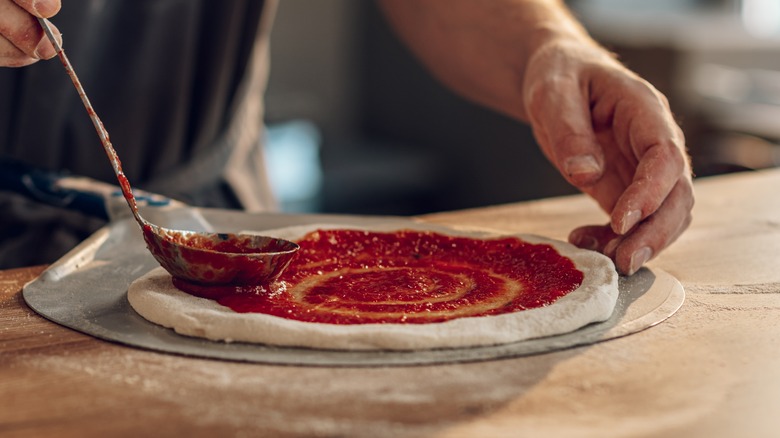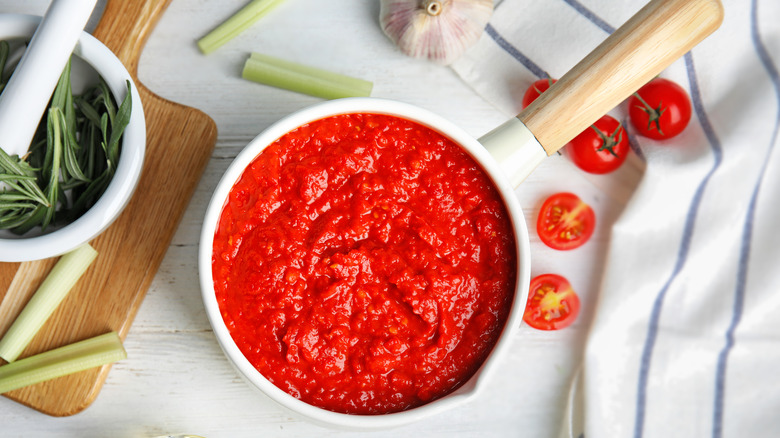Why You Should Try Cooking Your Sauce For Homemade Pizza
Pizza is one of those foods where — depending on who you're talking to — you're either wrong or very, very wrong. Debate rages across the country about what makes a truly great pizza. Method, style, and toppings divide families and friend groups. While some people advocate for pineapple on their pizza, others aren't fans of this variation.
The OG of pizza — the Neapolitans — take their pizza so seriously that they even created the Associazione Verace Pizza Napoletana, which maintains a set of rules passed down from generation to generation. The rules are used to draw a line between a "true Neapolitan pizza" from other types of pizza and protect the tradition of the original Neapolitan recipe. One of their rules includes using an uncooked sauce of hand-crushed tomatoes (via Associazione Verace Pizza Napoletana).
The reason why uncooked sauce is used in most pizzerias is because of the acidity that uncooked tomatoes lend to your pizza. They add some much-needed brightness to what can sometimes be heavy mozzarella or meat toppings. However, just because pizza is traditionally made with a simple uncooked sauce of crushed tomatoes doesn't mean that you should never put cooked sauce on a pizza. Plenty of pizza styles, like Sicilian-style pizza and some Chicago deep dish pizza recipes, call for a cooked sauce, as well.
So if you find your pizzas to be bland, try cooking your sauce first for a more pronounced flavor.
Break the pizza rules and use your homemade sauce
While traditional pizza sauce is typically cooked once in the oven, cooked pizza sauce hits the heat twice, resulting in an ultra-concentrated tomato flavor. You could even go the New York-style pizza route and use a "heavily-seasoned cooked tomato sauce made of olive oil, canned tomatoes, garlic, sugar, salt, and herbs like oregano, basil, and crushed red pepper" (via The Spruce Eats). It will add another layer of complexity to your pizza while still providing the bright tomato notes.
However, PMQ Pizza Media stresses caution when using a cooked sauce on your homemade pizza. While cooking it once results in deep, complex flavors, cooking it a second time at the high temperature required for baking a pizza could result in a bitter and scorched flavor that will be completely unappetizing. To avoid this, make sure that you are judicious with your toppings. This will help prevent extra evaporation and concentration, which can lend an unpleasant taste to your sauce. So the next time you have a pizza night, don't be afraid to reach for your leftover sauce in the fridge or simply make your own pizza sauce.

